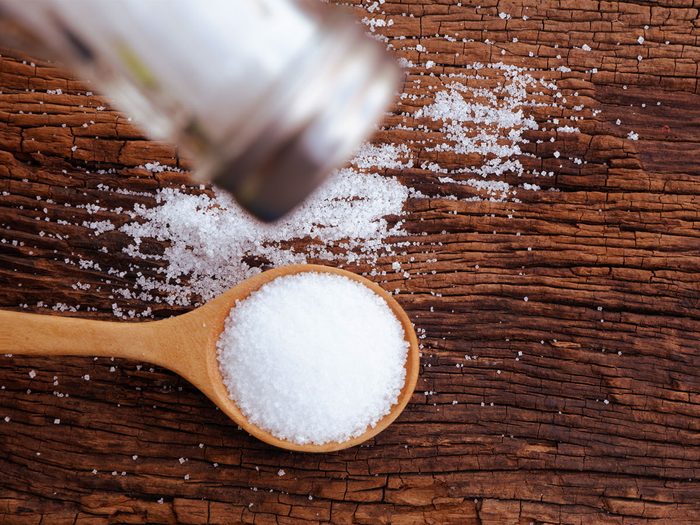
Salt water for a sore throat
Salt doesn’t just make food taste good—it’s extremely useful around the house for a variety of purposes, one of which is an old-fashioned remedy to soothe a sore throat. “Gargling with salt water when you have a sore throat may help relieve some of the pain and irritation,” says Dan McGee, MD, a pediatric hospitalist at Helen DeVos Children’s Hospital. “But don’t overdo it—one teaspoon of salt in eight ounces of water should do it.” And be sure not to swallow it—yuck! Studies have shown gargling to be effective, but if the symptoms persist, see your doctor to make sure you don’t have an infection. Find out other sore throat remedies that are already in your pantry.
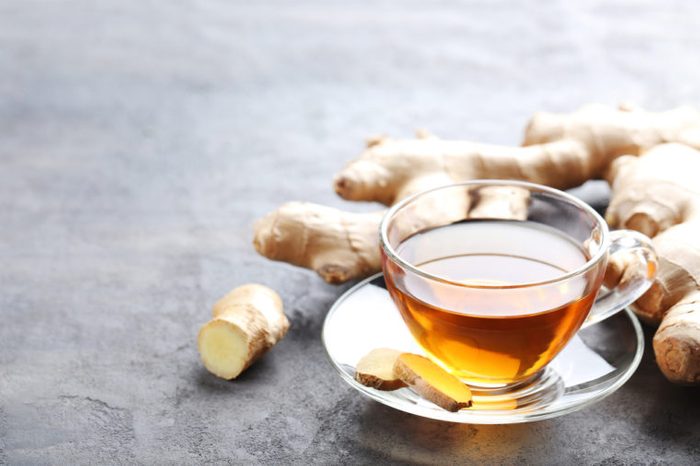
Ginger for nausea
Ginger has been used for hundreds of years for its medicinal properties, including helping to calm tummy troubles. “Research has found ginger to be an effective digestive aid most notably by helping to alleviate nausea due to morning sickness during pregnancy, motion sickness or chemotherapy,” says registered dietitian Erin Palinski-Wade, RD, CDE, author of Belly Fat for Dummies. “Although we do not yet understand the exact method that allows ginger to be effective at reducing nausea, it is thought it may work by ginger obstructing the serotonin receptors in the gut that cause nausea.” It also may prompt the body release enzymes that help break down food, she says. Learn more on how to soothe nausea with ginger.
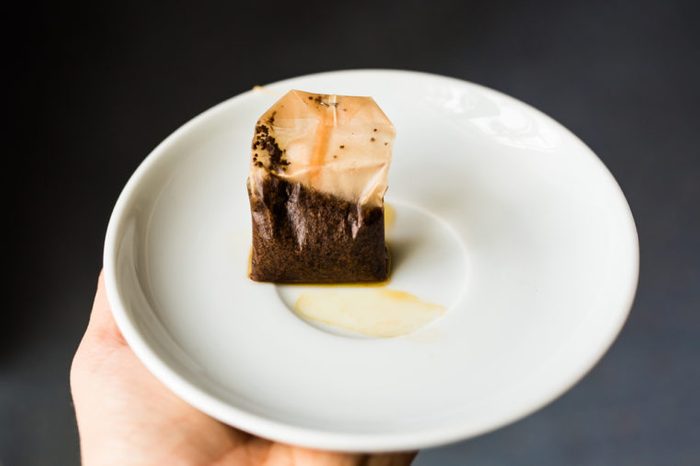
Cool tea for eye bags
Tea has tons of benefits for both inside and outside your body, such as helping calm puffy eyes, which your grandmother probably knew. “The caffeine in the tea bags helps with vasoconstriction, or shrinking of the blood vessels, around the eyes, leading to less puffiness or swelling skin,” says dermatologist Purvisha Patel, MD, creator of Visha Skin Care. “The cool temperature also helps decrease inflammation and swelling under the eyes.” Simply wring out wet tea bags, place in the fridge for a bit, and then put over eyes. Some studies have even shown the caffeine in tea applied topically can also act as sunscreen and help prevent skin cancer.
Related: 3 Healthy Tea For Fall Sipping
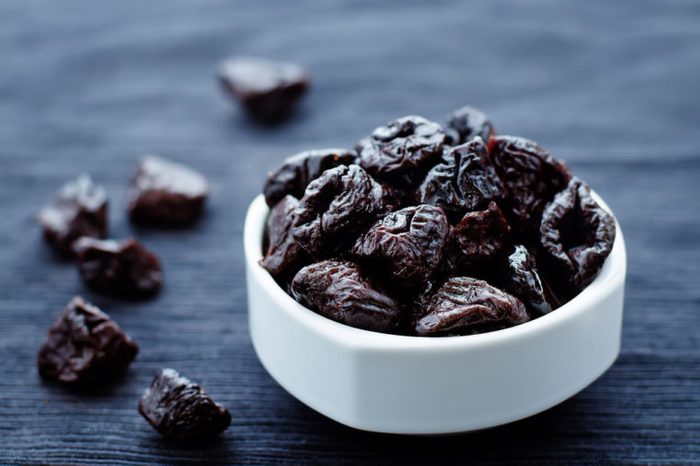
Prunes for constipation
When you just can’t go, try a home remedy for constipation like prunes. They sound gross—probably why the California Prune Board got them renamed as “dried plums”—but if they were good enough for Grandma, they’re good enough for us. “A high fibre diet, along with adequate fluid, can be effective at helping to alleviate constipation,” Palinski-Wade says. “Prunes are an all-natural source of fibre, with three grams of fibre per serving and only 100 calories, making them an easy way to boost the fibre content of your meal plan.” For a midday snack, check out this super easy prune trail mix recipe.
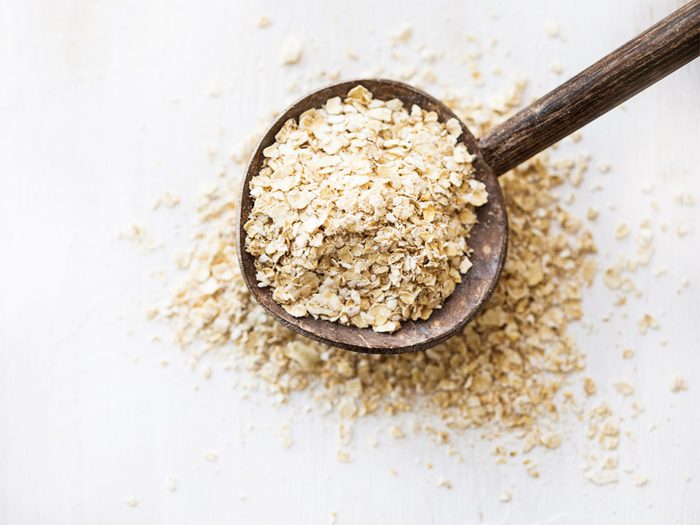
Oatmeal bath for skin ailments
If you suffer from skin conditions like eczema or psoriasis (Find out more on how to relieve psoriasis symptoms.), or even just have run-of-the-mill dry skin, home remedies may help. Although it sounds weird to bathe in something you might eat, old-fashioned oatmeal baths can be very soothing—they’re even recommended by the National Eczema Association. “Oatmeal baths are great for dry, itchy skin,” Dr. Patel says. “Oatmeal, when soaked in warm water, creates a slimy film that coats the skin to protect it and trap in moisture.” Grind up rolled oats (not the instant variety) and pour into a warm, but not hot, bath. Pat dry instead of rubbing when you get out.
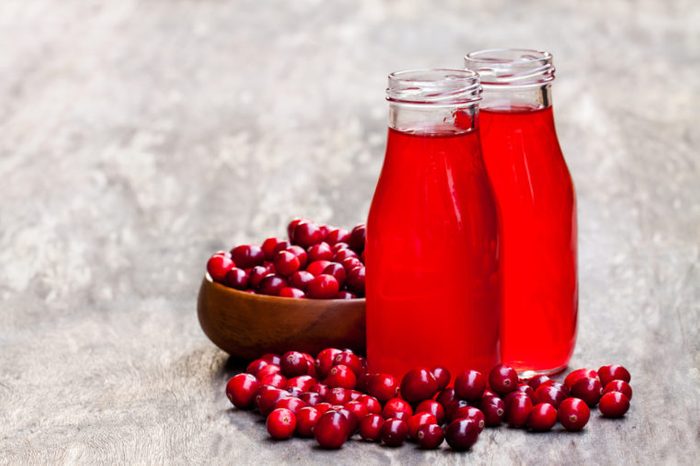
Cranberry juice for UTIs
At the first signs of a urinary tract infection, your mother probably drank cranberry juice. But can a fruit really stave off a bacterial infection? Although some experts theorize that it’s really just the flushing out of the urinary tract by drinking a lot of fluid, or that the acidic environment isn’t hospitable to bacteria, there may be more to it. “Cranberry has been shown to reduce how well the bacteria stick to the lining cells of the bladder,” says Diana Bitner, MD, an obstetrician and gynecologist at Spectrum Health, although studies in women with recurrent infections have been inconsistent. Even so, “cranberry is unlikely to cause harm, might reduce bladder infections, and could be used in conjunction with other strategies your health care provider recommends,” Dr. Bitner says. Check out these natural home remedies for preventing UTIs.
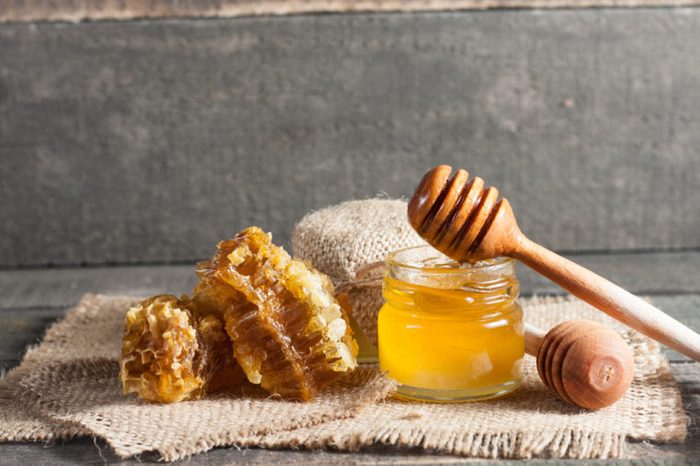
Honey for coughs
There’s nothing worse than a pestering cough that keeps you up at night, but luckily, there are some old-fashioned natural remedies for coughs that can help. “Honey may help with a cough caused by irritation,” Dr. McGee says, by lubricating the throat. Studies have actually shown honey to be more effective than cough medicine. “Just be sure not to use it in small children [under age one] as it may cause botulism,” Dr. McGee says. Here are 7 more natural ways to deal with a nagging cough.
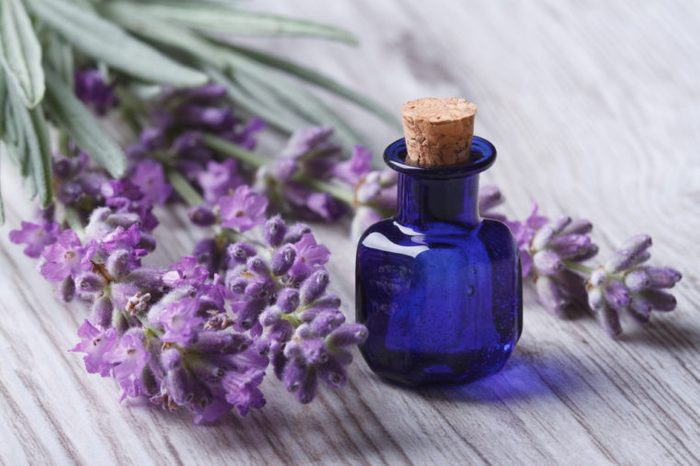
Lavender for trouble sleeping
You can harness the power of this fragrant herb by using lavender essential oil to help you get more shut-eye. Its old-time medicinal powers help the body to relax, allowing you to fall asleep easier. (These 13 things might be wrecking your sleep.)”Research shows that smelling lavender decreases heart rate and blood pressure, key elements of relaxation,” says sleep expert Richard Shane, PhD, creator of the Sleep Easily method. “The two main chemicals in lavender have been shown to have sedative and pain-relieving effects.” One study showed that people who smelled lavender before bed had brain waves indicating deeper sleep. But only use lavender externally, or by inhalation.
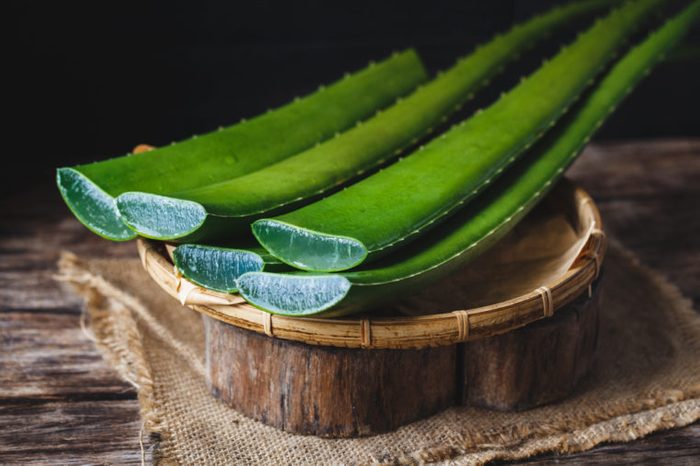
Aloe for burns
You may think of aloe for sunburn relief, but the ancient treatment can also be used for other types of burns as well. One study demonstrated the effectiveness of aloe over other treatments for second-degree burns. “Aloe is a very soothing remedy for burns,” Dr. Patel says. “It is a gel derived from the aloe vera plant that contains-anti inflammatory agents that can help with burns.” Make sure you use pure aloe and not a fragranced version, and test it out first to make sure you’re not allergic. For serious burns, though, you should still see a doctor. Find out more health benefits of this super plant.

Chicken soup for colds
Even in these days of take-out food, there’s nothing like a bowl of Grandma’s chicken soup when you’re sick—and it turns out, the chicken soup remedy is backed by science. “Chicken soup works for me,” Dr. McGee says. “On top of it making me want to watch cartoons and take a nap, there is actually a small amount of prostaglandins in chicken soup that can help fight infections.” The landmark study on chicken soup showed that the nourishing food might have an anti-inflammatory effect, which later research backed up. For an added kick, try this Spicy Chicken Soup recipe.
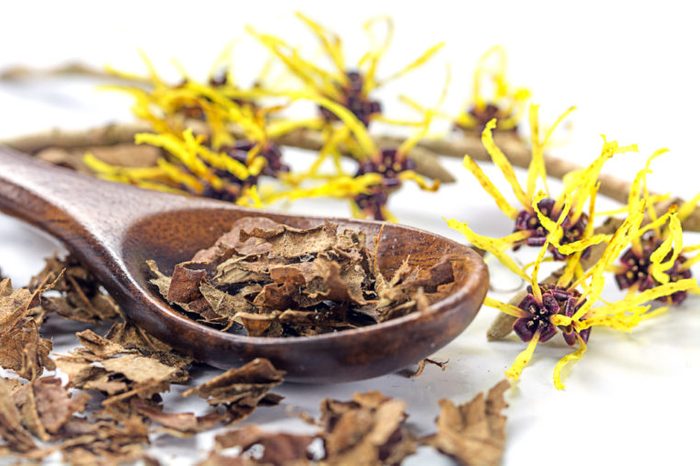
Witch hazel for hemorrhoids
Although it sounds like something an old witch in the woods might use, this compound is actually an anti-inflammatory made from the witch hazel plant, common in natural beauty products. Your grandparents probably knew it can also help cool the burn of hemorrhoids, because the tannins in witch hazel help calm blood vessels and reduce swelling. Although there haven’t been many studies on this herbal remedy, generations (and anyone who’s ever tried it) can attest to its soothing powers. Find out the natural way to heal bruises quickly.
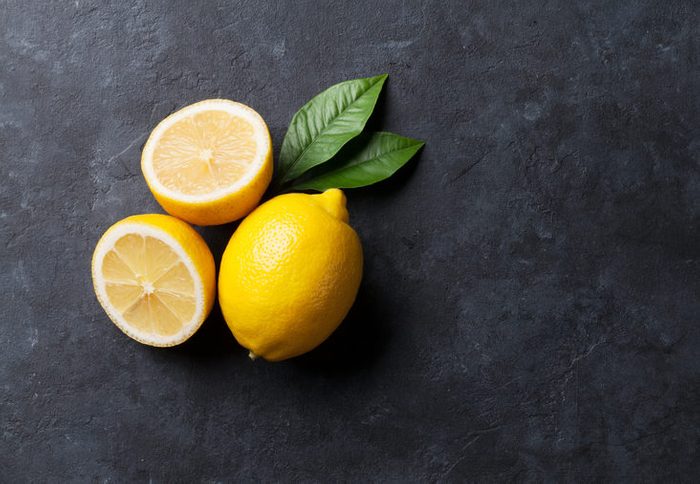
Lemon for motion sickness
Looking for ways to survive a road trip with the family? Be sure to pack lemons, a time-honoured way to reduce car sickness. “Motion sickness causes you to produce excess saliva, which can upset your stomach and trigger a nauseated feeling,” Palinski-Wade says. “Sucking on a lemon, which causes your mouth to pucker from the sore taste, can reduce the production of saliva, which in turn can help to prevent the nausea associated with it.” Lemon water made ahead of time may work, too, and research has shown even sniffing the refreshing scent of lemon can help. Check out these 11 foods that have extra healing power when you need it.

Duct tape for warts
Originally invented during World War II, duct tape was also found to have a host of genius first aid uses along with home projects. The weirdest one? To cure warts! This low-tech method is actually endorsed by the American Academy of Dermatology and has research to back it up. Although doctors aren’t exactly sure why it works, one study found that placing duct tape over warts was 25 percent more effective than freezing them—and much cheaper to boot.
Struggle with athlete’s foot? These natural home remedies will help soothe the itch and fight fungus.
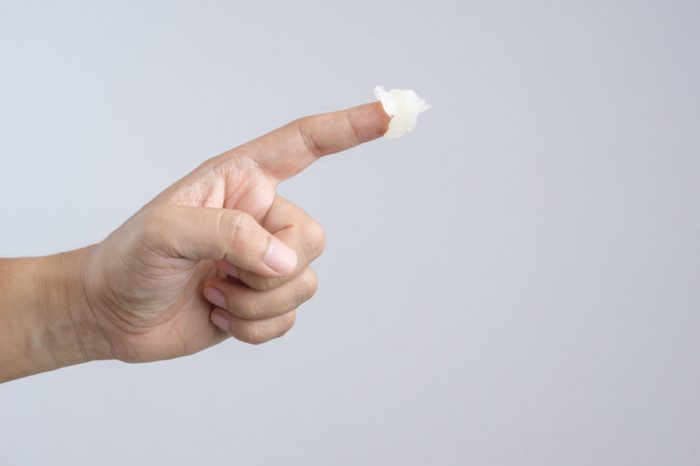
Petroleum jelly for wounds
Petroleum jelly has many uses you never thought to try, although your grandmother probably did. But for skin, using it too frequently might not be a good idea. “It is comedogenic, or acne causing, and can lead to breakouts when used on the face and body,” Dr. Patel says. (Here are 17 daily habits of people who never get acne.) “It also makes sunburns worse by trapping in heat.” However, she does recommend one particular use for the old-time product. “I do not recommend petroleum jelly for all skin issues, but it can be helpful to occlude [or close up] a wound and can prevent infection,” she says. Studies have shown it’s even effective in post-surgery healing.
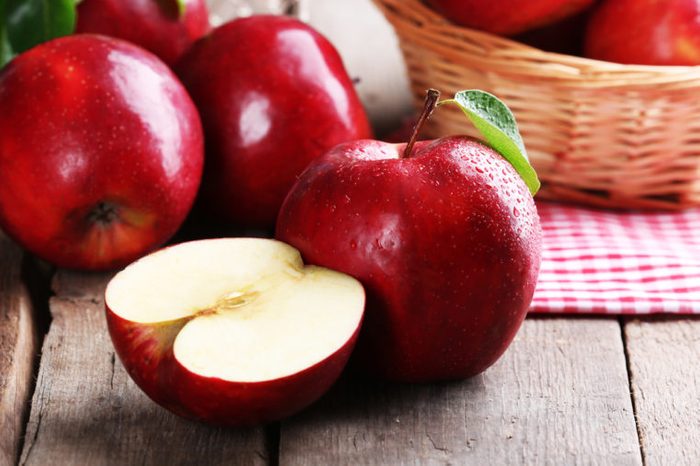
Apple for cleaning teeth
If you’re at work and can’t get to a toothbrush but want to save your teeth from coffee stains, try munching an apple. Turns out, the old adage might be true—and apples keep away not only the doctor, but the dentist, too. “When you eat this fleshy fruit, it scrubs the teeth—think of apples as a natural toothbrush,” says dentist Nancy Rosen, DMD. “The skin of the apple, which is extremely high in fibre, can scrub against your teeth, helping to remove plaque and stain.” Although apples do contain acids and sugar, which can damage teeth, the benefits to your chompers may outweigh the negatives. Swish your mouth with water afterwards to rinse them off.
Gums constantly bleeding? Here’s 6 reasons why.
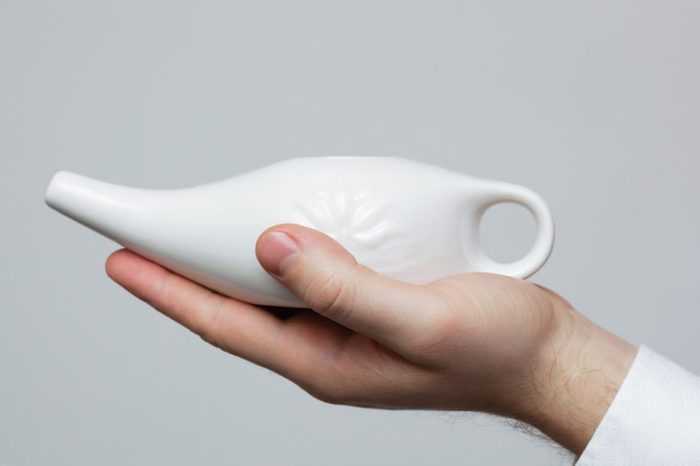
Neti pot for congestion
If you have symptoms of a cold, try to nip it in the bud with the ancient Indian tradition of a neti pot for nasal irrigation. As you pour water into your nostrils, the pot works to clean out your nasal passageways. In a recent study from the U.K., participants who used a neti pot had a greater reduction in symptoms of chronic sinusitis than those who didn’t. But be careful to clean and use your neti pot correctly. “If you don’t use sterile water, which means boiling it and letting it cool, one can develop a sinus infection or worse from neti pots,” Dr. McGee warns. Learn the 13 ways doctors allergy-proof their home.
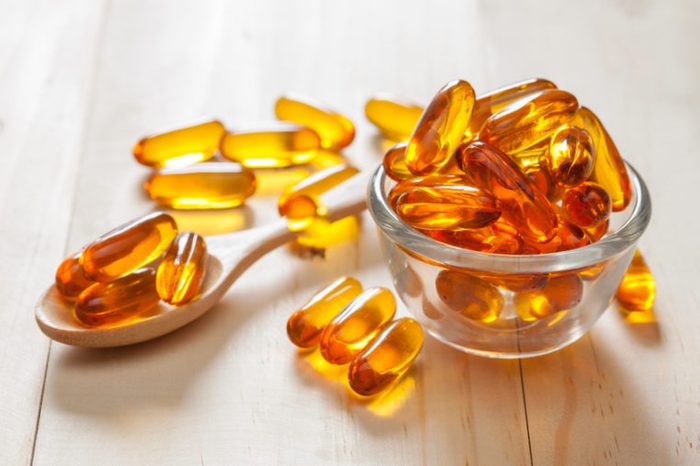
Cod liver oil for inflammation
Old-time remedies like cod liver oil can naturally help the pain of arthritis. Plus, this fish oil has other health benefits. “This oil, extracted from cod fish, provides a rich source of EPA and DHA omega-3 fatty acids, which are the primary omega-3s you need to support heart health, brain health, eye health and maternal health,” Palinski-Wade says. “One study found that cod liver oil reduced inflammatory markers in insulin-resistant individuals.” If you’re squeamish about the oil itself, try fish oil supplements. Check out these 23 science-backed natural home remedies for arthritis pain relief.
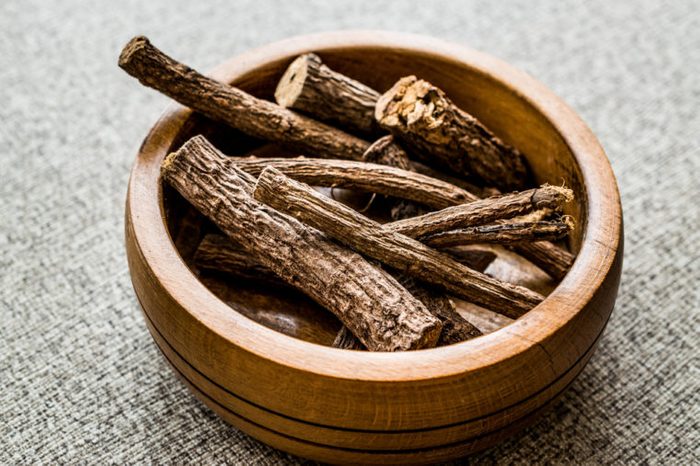
Licorice root for bad breath
Licorice has been valued for its healing properties since ancient times, which is why your grandfather may have chewed on it to freshen his breath. “It may be an effective agent to fight the bacteria that can cause tooth decay and periodontal disease,” Dr. Rosen says. “It’s also used as a breath freshening ingredient in some natural toothpastes.” But we’re not talking about licorice candy—we mean the actual licorice plant. Studies have shown it may also be effective at preventing stomach upset and relieving stress. Learn more about the health benefits of licorice root.

Ice for headaches
Try this old-school remedy: ice. The National Headache Foundation advises applying cold packs on the forehead and temples. A study from the University of Hawaii also found that a frozen wrap placed in the front of the neck, over the carotid arteries, significantly reduced pain in migraine sufferers. These home remedies for headaches will have your head feeling better in no time.
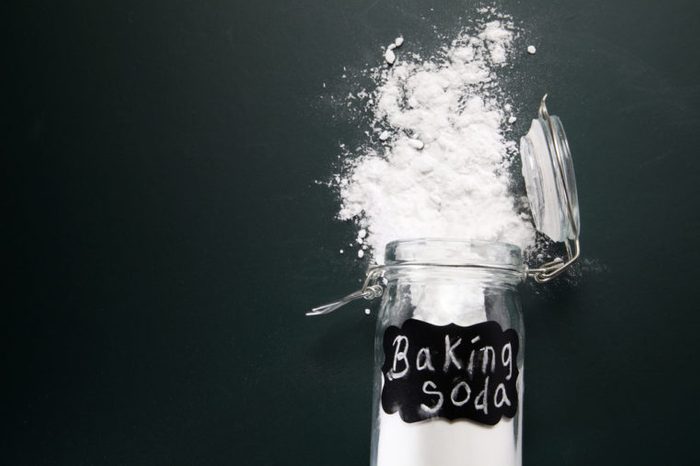
Baking soda for whiter teeth
Forget those whitening strips—there are natural teeth cleaning methods that can whiten teeth. Try using baking soda, which is probably what your grandmother brushed her teeth with—and has been shown in studies to benefit teeth. “You can whiten your teeth with making a paste out of baking soda and a little water,” Dr. Rosen says. “Put some baking soda in a small dish, then add a little water, which will form a thick paste.” Then dip a toothbrush in it and brush. The abrasiveness will remove plaque and whiten the teeth, she says. But “you want to be careful and not overuse this method due to the abrasiveness of the baking soda,” Dr. Rosen says. “Too much can hurt the enamel or the gum tissue.” Plus, find out why you need to start taking your gum health more seriously.

Avoid the cold to fight off colds
It seems like an old wives’ tale—that cold weather actually makes us sick. It’s now generally believed the real reason we get sick more often in winter is because we are cooped up inside sharing other peoples’ germs. But, there could be some validity to keeping warm when it’s chilly out. A Yale study found that the common cold virus replicates more effectively in cells of cooler temperatures than at core body temperature, with the researchers noting it appears the immune response, not the virus itself, was the cause. In any case, it can’t hurt to wear a hat like your parents told you!
Don’t miss the 6 surprising ways nature can improve your health.

Tennis ball for achy feet
Tennis balls have so many uses, including as a massage device for tired feet. This old-school remedy is low-tech, but very effective, according to the American Academy of Family Physicians. “This is a ‘plantar fascia’ [the ligament that connects your heel bone to your toes] massage,” says certified athletic trainer Phillip Adler, PhD, ATC, manager of Spectrum Health Orthopedic and Sports Medicine Programs. “The tennis ball helps to lengthen tight tissue on the bottom of the foot. Combined with heel cord stretching, or Achilles stretching, this technique can be very helpful for plantar fasciitis.” (These 6 hidden muscles might be causing you pain.)
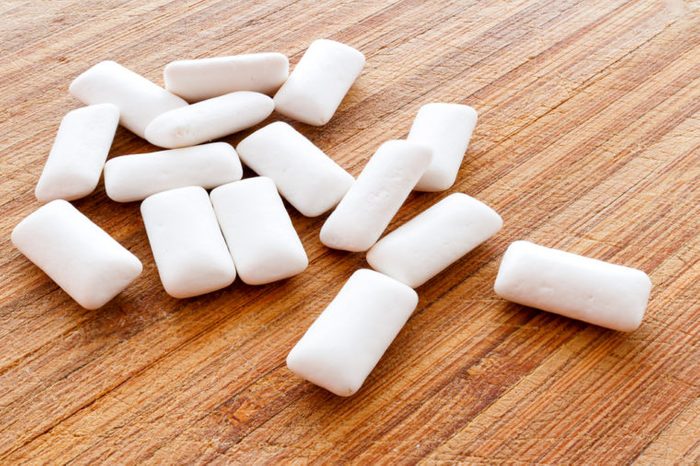
Chewing gum for stress
Your grandfather’s choice of chewing gum might be considered retro now (Beemans, anyone?), but the sticky substance has more advantages than just freshening breath, no matter what the brand. A study from Japan found that two weeks of regularly chewing gum improved participants’ levels of anxiety, mood, and tiredness. Another study from Australia echoes these findings, with levels of the stress hormone cortisol lower in gum chewers by 16 percent during mild stress and 12 percent in moderate stress. It’s like a stress ball for your mouth! Read up on these natural remedies for anxiety relief.
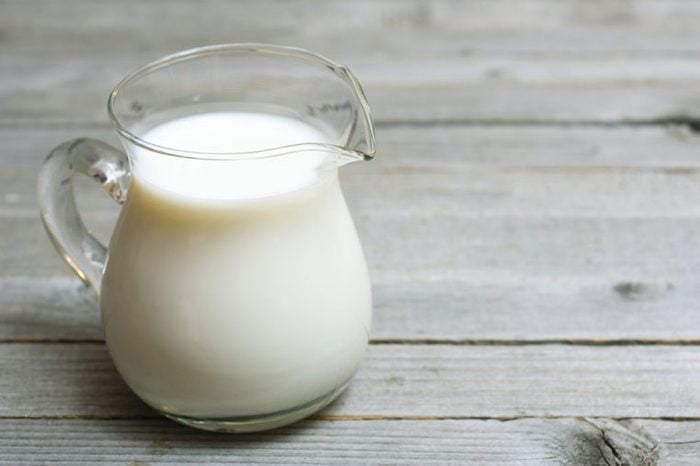
Buttermilk for age spots
You can skip the expensive skin creams. This rich by-product of butter contains lactic acid and ascorbic acid. One study showed that this combination lightened age spots more effectively than lactic acid alone. Apply to the spots with a cotton ball, then rinse with water after 20 minutes. Learn how pollution is secretly aging your skin.

Vitamin C for allergies
Vitamin C isn’t just good for the common cold; it turns out to be an effective natural antihistamine. In one study, 74 percent of the subjects who received a vitamin C nasal spray reported that their noses were less stuffy, compared with 24 percent of the patients who took a placebo. The study’s authors recommend getting two grams per day from food and/or supplements. Don’t miss these 6 foods that are high in vitamin C.
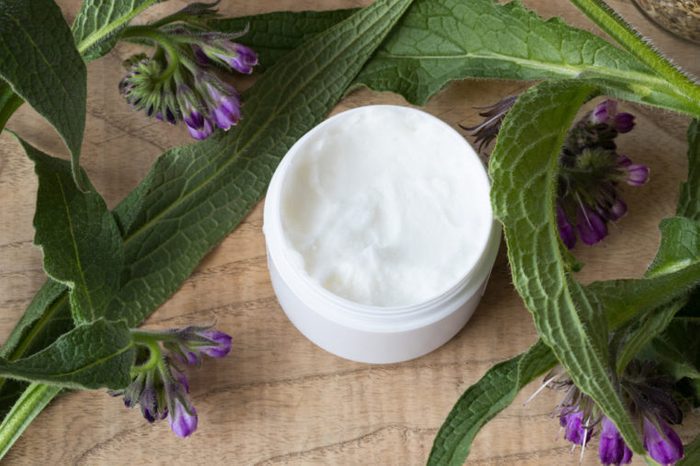
Comfrey for back pain
This medicinal plant has been used for centuries to treat joint and muscle pain. A study of 215 patients found that applying concentrated comfrey cream to the lower and upper back reduced muscle pain. You can buy it in health food stores and online.
Wondering what type of back pain you have? Here’s how to tell.
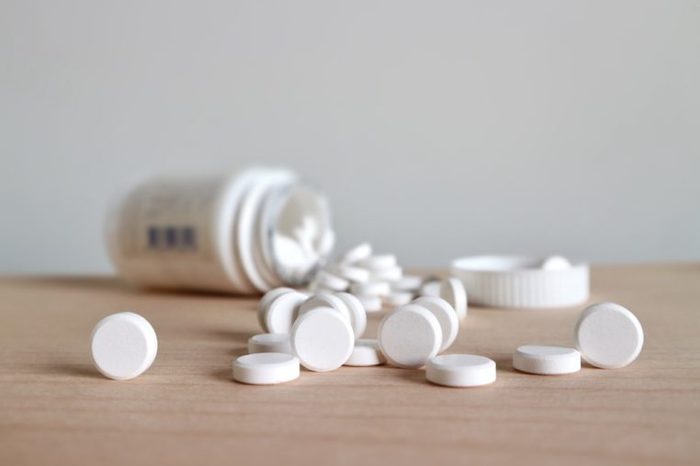
Aspirin for calluses and corns
To create your own corn-softening compound, crush five or six uncoated aspirin tablets into a fine powder. Mix the powder thoroughly with one half teaspoon of lemon juice and one half teaspoon of water. Dab the paste onto the thickened skin, lay a piece of plastic wrap on top, and cover the plastic with a heated towel. Remove everything after ten minutes and gently scrub away the loosened skin with a pumice stone. Of course, you shouldn’t try this if you are allergic to aspirin. Here are some more natural home remedies to make corns and calluses disappear.

Milk of magnesia for canker sores
Canker sores are ulcers of the mouth that can be caused by viral infections or injuries. To ease the pain, rinse your mouth with milk of magnesia or apply it to canker sores three or four times a day. And if you also struggle with cold sores, here are 3 proven ways to bring them to a hault.
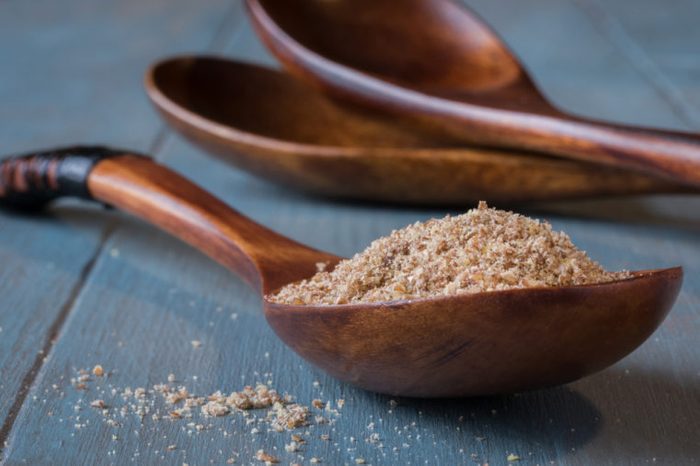
Ground flaxseed for constipation
“It’s almost as if nature tailor-made ground flaxseed to relieve constipation,” says Will Bulsiewicz, MD, a gastroenterologist in Mount Pleasant, South Carolina. “It is a great source of both insoluble and soluble fibre, which add bulk to the stool and promote the growth of good bacteria.” Ground flaxseed is an excellent source of plant-based omega-3 fatty acids, which are known to help soften stool and relieve constipation. Aim for two to three tablespoons a day as part of a fibre-rich diet. These are the best foods to improve your gut health.
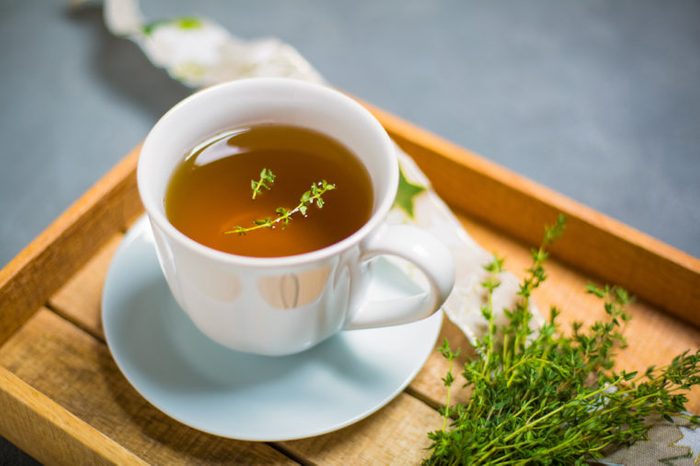
Thyme tea for a cough
Thyme is a natural expectorant that relaxes the respiratory tract and loosens mucus. Studies have found that using thyme in combination with primrose or ivy relieves the frequency and duration of coughs. To make thyme tea, place two tablespoons of fresh thyme (or one tablespoon dried) in a cup of hot water. Allow it to steep, then drain out the herb. Add honey to taste. Check out the surprising food that might actually cure your cough.

Blackberry tea for diarrhea
Blackberries are rich in tannins, substances that can tighten mucous membranes in the intestinal tract. They have long been used as a treatment for diarrhea. Make blackberry tea by boiling one or two tablespoons of fresh or frozen blackberries or dried blackberry leaves in one and a half cups of water for ten minutes, then strain. Drink several cups a day. You can also buy blackberry tea, but make sure that it contains blackberry leaves and not just flavouring. Here are some more at home remedies for diarrhea.
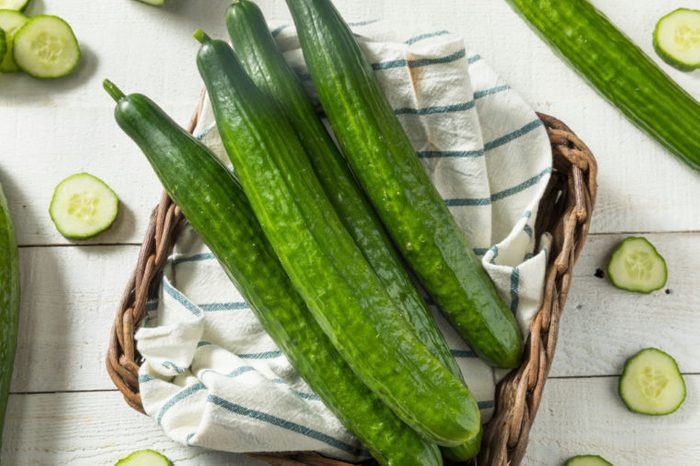
Cucumbers for eyestrain
Lie on your back and place one cucumber slice (about one eighth-inch thick) over each closed eye. Cucumbers contain antioxidants that studies have shown help decrease swelling and relieve pain. Replace the slices with a cooler pair every two or three minutes, for up to 15 minutes total.
Related: These Smoked Salmon-Stuffed Cucumber Rolls Are Worth Hosting Brunch For
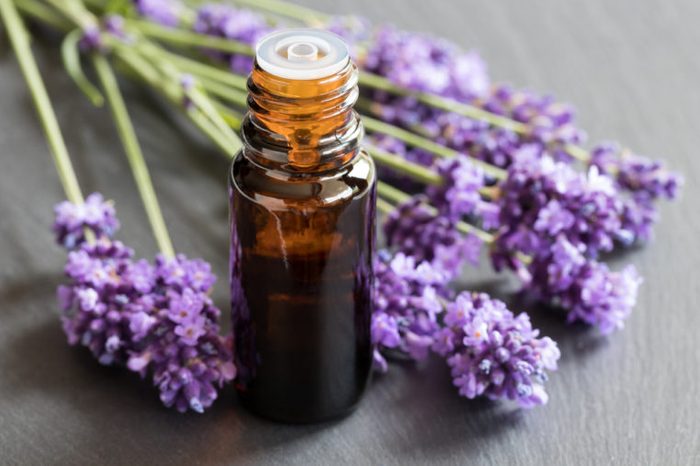
Lavender oil for foot odour
Lavender essential oil not only smells good but also has antibacterial properties that help kill germs. Before bed, rub a few drops of oil onto your feet and massage it in. Pull on a pair of socks to protect your sheets. Check out the most germ-infested things you touch every single day.
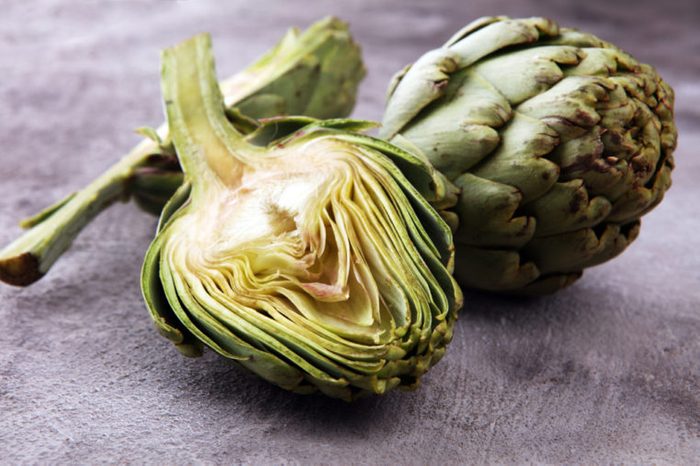
Globe artichoke extract for GERD and heartburn
Compounds in artichoke leaves called caffeoylquinic acids stimulate the release of bile from the gall bladder, which helps relieve nausea, gas, bloating, and other symptoms of gastroesophageal reflux disease (GERD) and heartburn. Since the leaves are mostly inedible, look for artichoke extract capsules in health food stores or online. Don’t miss these other secrets for controlling heartburn.
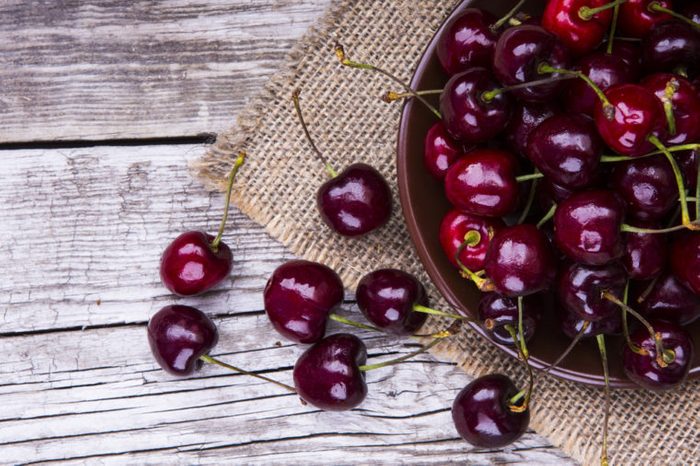
Cherries for gout
People who ate about 20 cherries every day were less likely to experience flare-ups of gout, according to a study of 633 patients with the condition. Cherries contain compounds that help neutralize uric acid. Learn more incredible health benefits of cherries.
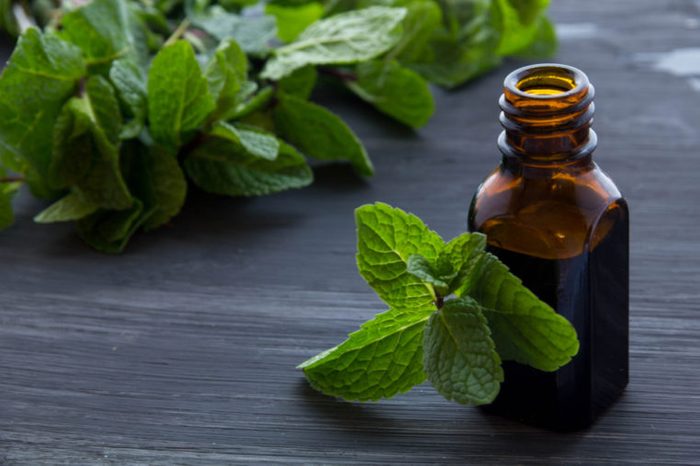
Peppermint oil for headaches
Peppermint essential oil cools the skin, numbing the pain of a tension headache as well as acetaminophen does, according to two small studies. Mix a few drops with olive oil to prevent skin irritation, then gently massage onto your forehead and temples.
Still taking medication for your headaches? Here’s what (and how much) to take.
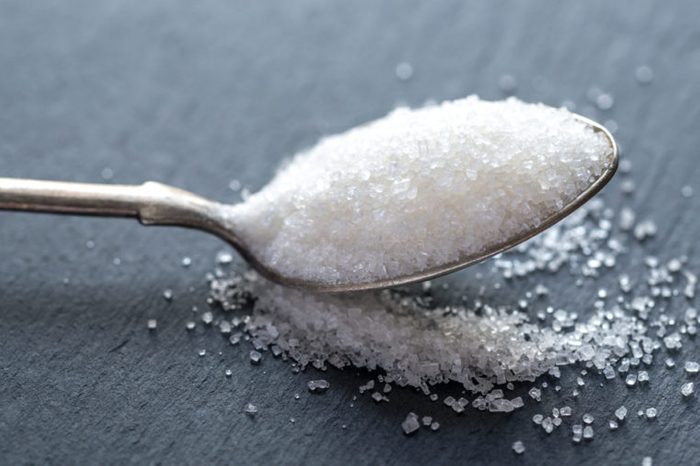
Sugar for hiccups
A spoonful of sugar doesn’t just help the medicine go down. When it comes to hiccups (contractions of the diaphragm), it is the medicine. “Eating the grainy sugar crystals forces you to swallow harder than normal, and this resets your diaphragm” to stop the spasms, says Claire Martin, a nutritionist based in Oakland, California. Read on for more natural hiccup remedies.
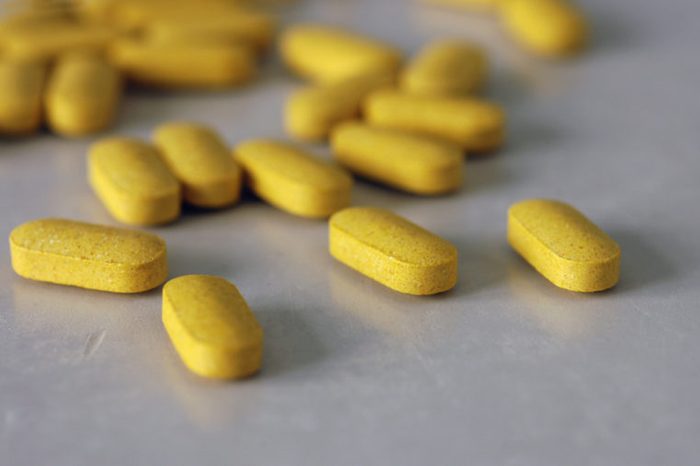
Niacin for high cholesterol
Studies show that taking niacin (vitamin B3) can lower LDL (or “bad”) cholesterol by 10 percent and triglycerides by 25 percent, and raise HDL (“good”) cholesterol by 20 to 30 percent. Since high doses can cause gastrointestinal problems, liver damage, and glucose intolerance, ask your doctor before taking any supplements. Find out why your cholesterol may be rising while you sleep.
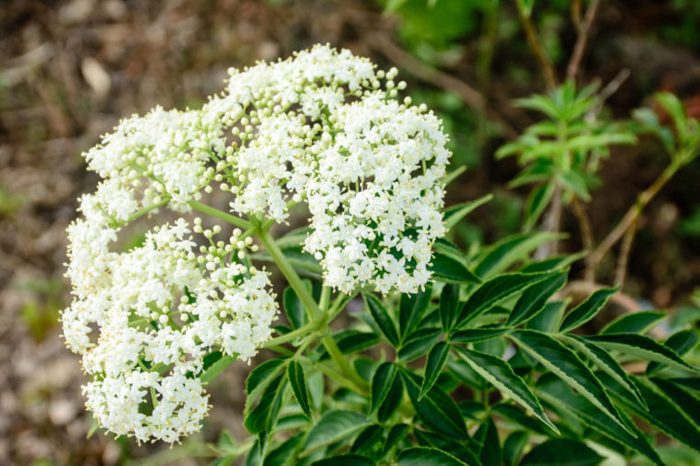
Valerian for insomnia
Valerian, an herb, helps people fall asleep faster without the “hangover” effect of some sleeping pills. It binds to the same receptors in the brain that tranquilizers such as Valium do. Take one half to one teaspoon of valerian tincture or two valerian root capsules 30 minutes before bed. Here’s what a psychologist suggests you do to treat your insomnia.
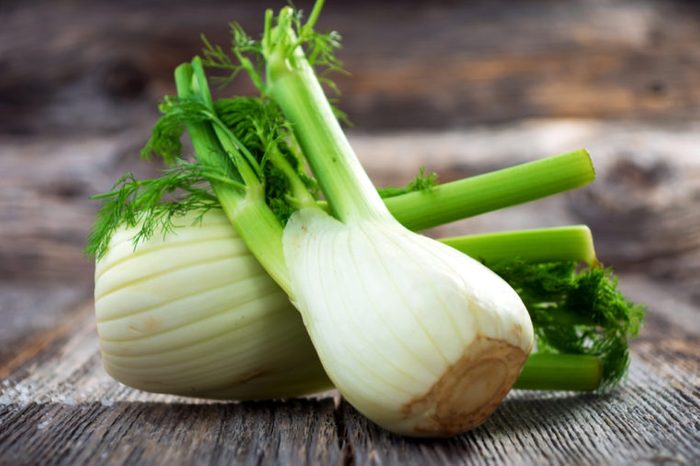
Fennel for indigestion
Those tiny seeds that you often see in bowls at Indian restaurants are fennel. They contain carminative agents, which help expel gas from the intestinal tract. Chew a pinch of fennel to help prevent after-dinner belching.
Related: This Sesame, Cilantro and Roasted Fennel Rice Bowl Is Anything But Ordinary
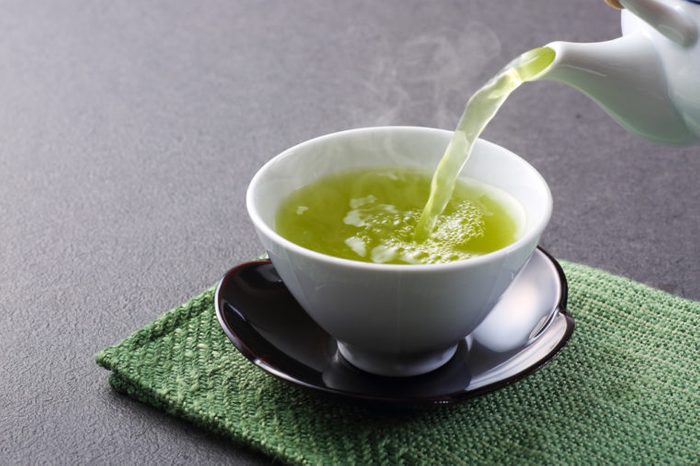
Green tea for joint pain
A potent antioxidant found in green tea called epigallocatechin-3-gallate (EGCG) may put the brakes on the joint pain and inflammation of rheumatoid arthritis, according to a study in Arthritis and Rheumatology. Researchers suggest drinking two or three cups a day to reap the benefits. Here are some more health benefits of green tea.
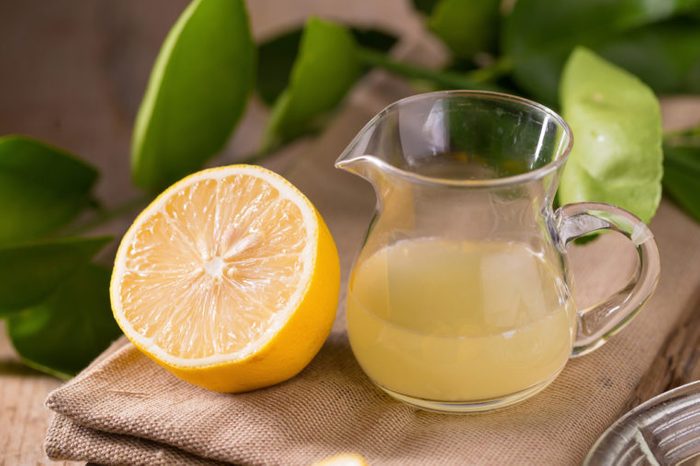
Lemon juice for kidney stones
The most common type of kidney stone occurs when oxalate—a compound found in foods such as spinach, bran, and french fries—builds up in urine and “sticks” to calcium, forming crystals. Drinking at least four ounces of lemon juice per day could help, researchers say, as citric acid can prevent the crystallization of calcium and oxalate that creates these stones. Find out if drinking hot water with lemon is really the best way to start the day.
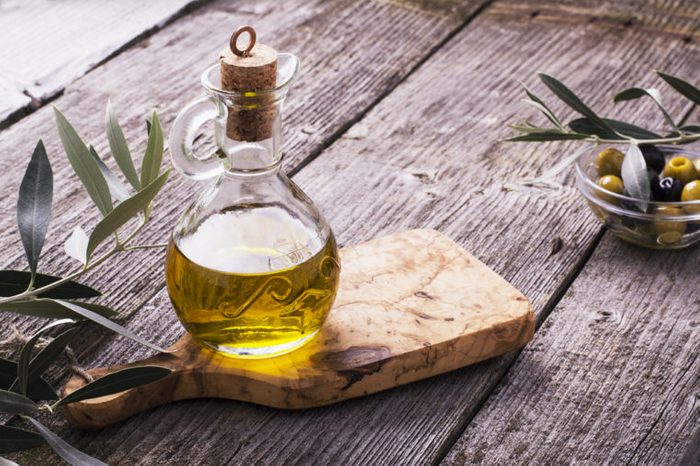
Olive oil for lip cracking
When you’ve got chapped lips, coat them with olive oil, a natural lubricant that will help soften and moisturize lips nicely. In fact, any vegetable oil will do. Learn more about the health benefits of olive oil.
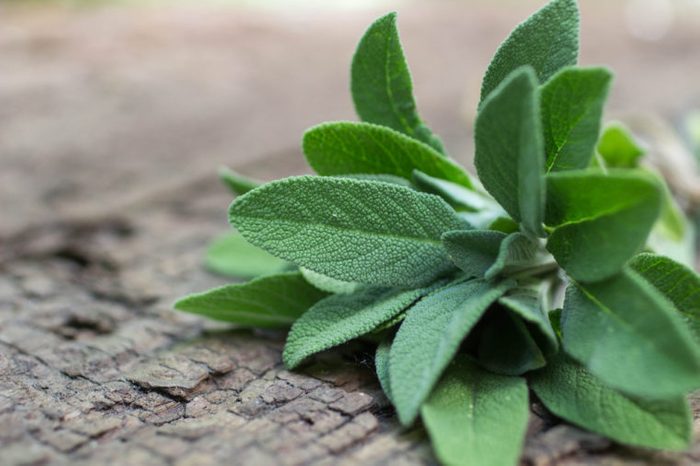
Sage for memory lapses
A study in healthy older adults found that taking sage leaf extract capsules improved word recall and memory. Read up on these 6 simple steps for improving your memory.

Hypnotism for menopausal symptoms
A study published in Menopause found that women who had five sessions of hypnosis per week experienced 74 percent fewer hot flashes at the end of a 12-week study than did a control group. Even better, the women in the hypnosis group reported that the hot flashes they did have were less severe than before. Learn the shocking ways menopause can affect your brain.

Pressure for neck pain
With your thumb or your fingertips, apply steady pressure on the painful spot on your neck for three minutes. Research shows that this simple acupressure technique helps loosen tight muscles to lessen pain. Suffer from back pain as well? These natural home remedies will help you find relief.
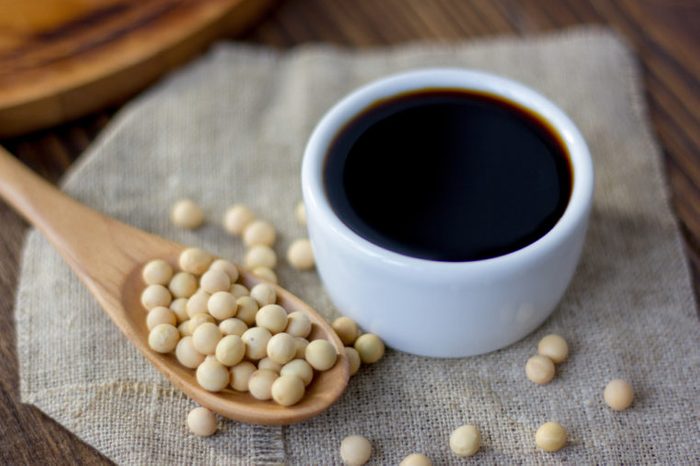
Soy for osteoporosis
A review of several studies conducted at the University of North Carolina, Asheville, found that people who ate foods rich in soy had healthier bones and a reduced risk of fractures. Scientists are still trying to figure out which active compounds may account for the protective effect, but good sources of soy protein include soybeans, soy milk, miso, tempeh, and tofu. Don’t miss these 40 ways to decrease your risk of osteoporosis.
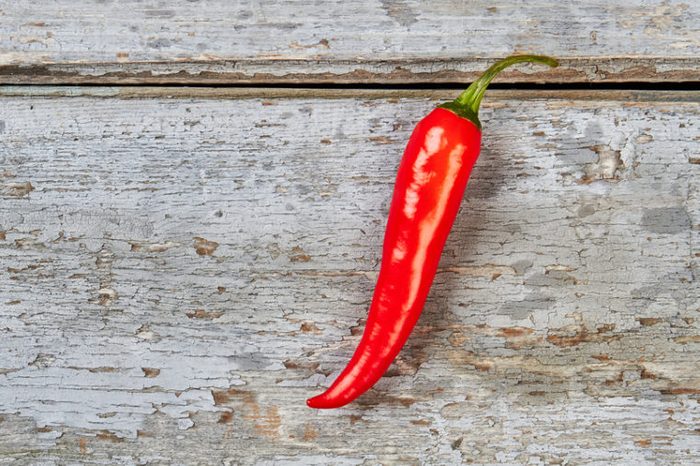
Capsaicin for psoriasis
Capsaicin is what gives cayenne its heat. Research has shown that applying capsaicin cream helps lessen the itching of psoriasis.
Looking to keep your skin on the up? These skincare products are specifically designed to firm your skin.
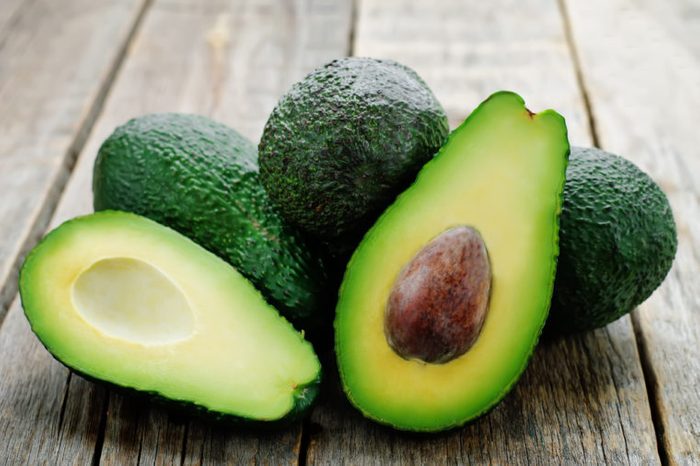
Avocado for razor burn
Avocado is rich with vitamins and oils that soften and hydrate skin to relieve the tenderness of razor burn. Apply mashed fruit or avocado oil directly to the irritated skin. Check out the surprising health benefits of avocados.
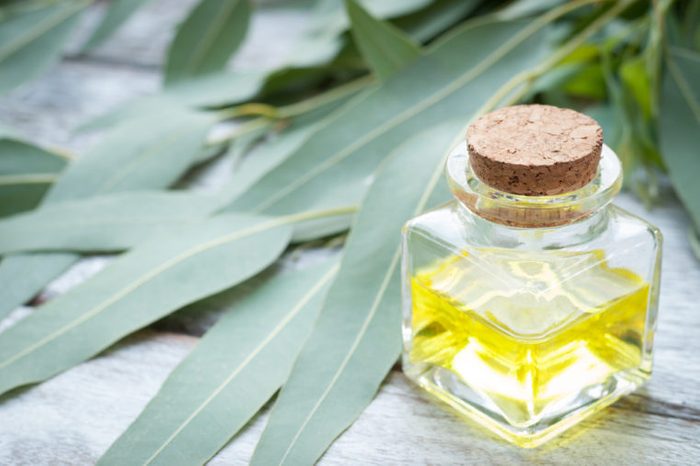
Eucalyptus oil for sinusitis
Give your congested sinuses a steam treatment. Add a few drops of eucalyptus oil to a pot of water, boil, and remove the pot from the stove. Drape a towel over your head and shoulders, then lean forward so it forms a tent over the pan. Keep your face about 18 inches above the water as you breathe deeply. As the vapour rises, it carries droplets of oil into your sinuses and loosens congestion. Studies show that the main ingredient in eucalyptus oil, cineole, can help people recover faster from acute sinusitis. Make sure you know these 5 call-in-sick signs.
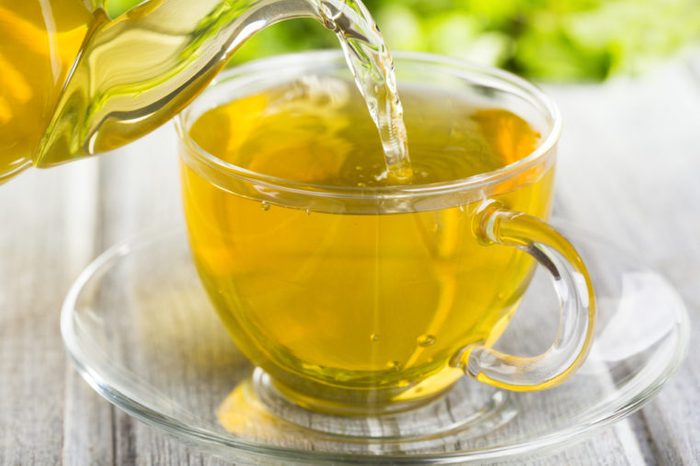
Horehound tea for a sore throat
Horehound, a plant in the mint family, can reduce the swelling of inflamed throat tissue. It also thins mucus, helping you clear it from your throat. To make the tea, steep two teaspoons of the chopped fresh herb in one cup boiling water for ten minutes; strain and drink. Here are more natural remedies for your itchy, scratchy throat.
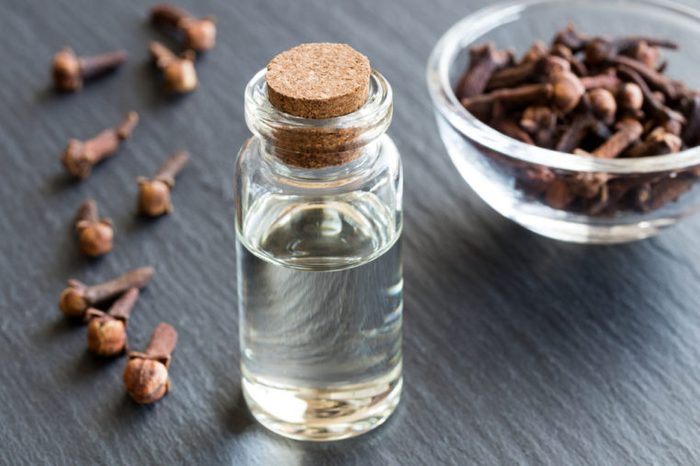
Clove oil for tooth and gum pain
“Oil of cloves can sometimes soothe an inflamed tooth,” says Saul Pressner, DMD, a dentist in New York City. Clove oil has bacteria-slaying properties and also a numbing effect. Mix a few drops with olive oil to avoid irritation, then swish it in your mouth. Learn the real cause of why your gums are receding.
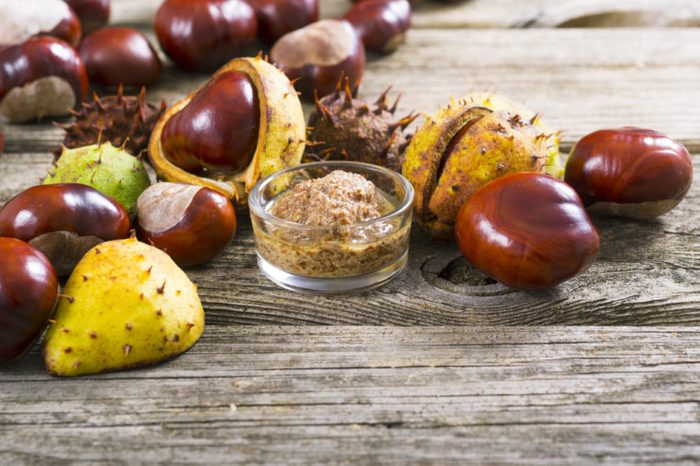
Horse chestnut for varicose veins
Horse chestnut seed extract improves blood vessel elasticity and seems to strengthen the valves inside veins, thanks to an active ingredient called aescin. Take a 250-milligram pill of horse chestnut seed extract twice a day for three months. Don’t miss these natural remedies that’ll help boost your energy.
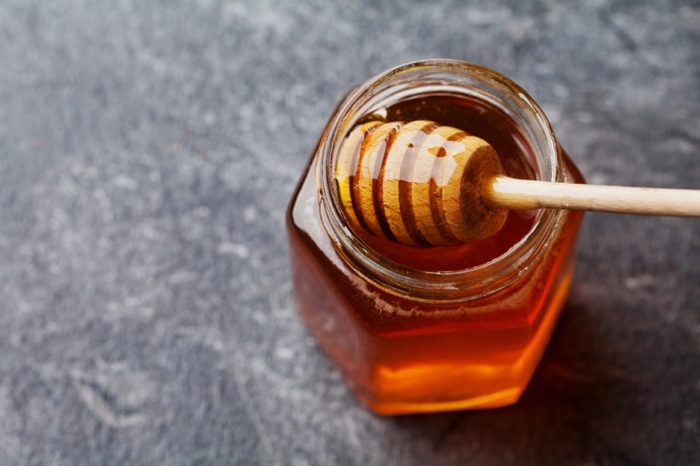
Honey for wounds
Since ancient Egyptian times, people have used honey as a salve for wounds. Pure honey contains the enzyme glucose oxidase, which causes a chemical reaction that releases hydrogen peroxide, an antiseptic. Honeys range widely in their antibacterial potency, however. For best results, scientists recommend manuka honey, from New Zealand, which contains an additional compound that increases its effectiveness. Apply honey directly to a wound every 12 to 24 hours and cover it with sterile gauze.
Want to incorporate honey into your meals? Check out this Rustic Honey-Roasted Carrot recipe.
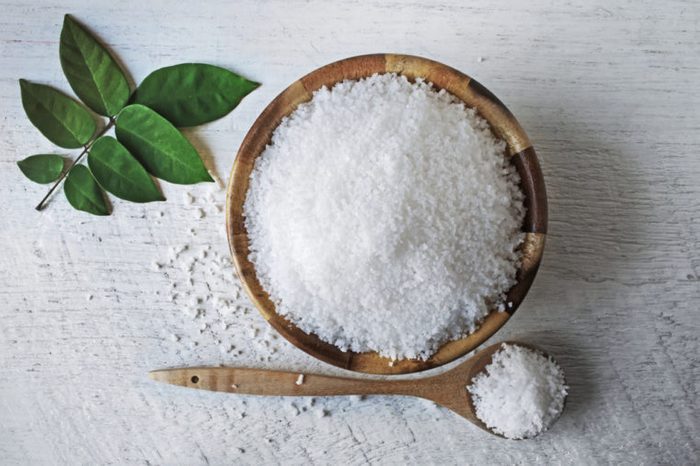
Sea salt for a yeast infection
Sprinkle a cup of sea salt in a tub of warm water, then take a nice soak to relieve itching and pain. Or try these over-the-counter remedies.
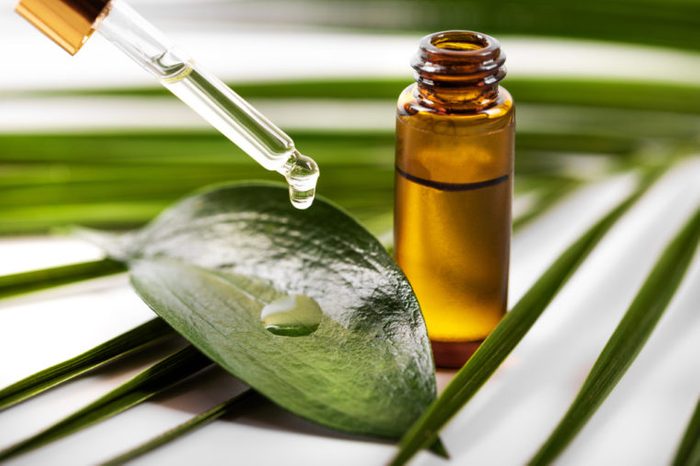
Tea tree oil for zits
In one study, a 5 percent tea tree oil gel was as effective as a 5 percent benzoyl peroxide lotion in limiting acne outbreaks—with fewer side effects. Don’t miss these 13 surprising home remedies for acne.
